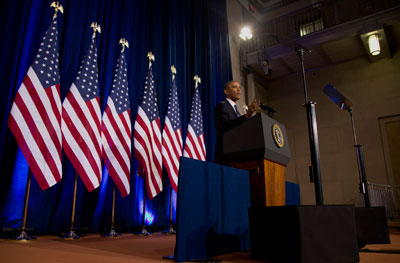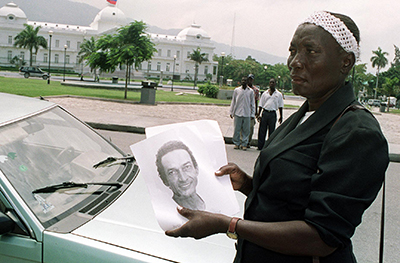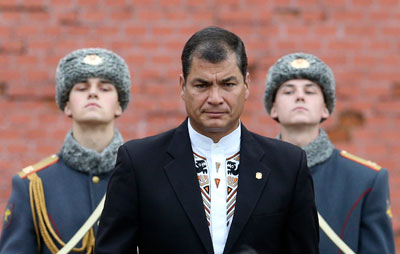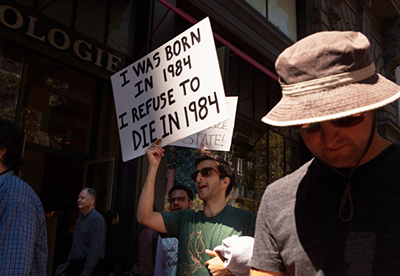Americas
2014
Press freedom deteriorates in Cyberspace, Egypt, Russia
Risk List underlines mass surveillance, fatalities, and censorship New York, February 6, 2014–Mass surveillance programs by the U.S. and U.K., as well as restrictive Internet legislation by various governments and a wave of cyberattacks globally, are among the disturbing developments that have landed cyberspace on the Committee to Protect Journalists’ Risk List, released today.
Mexican crime reporter abducted in Veracruz
New York, February 5, 2014–Armed assailants today abducted Mexican crime beat reporter Gregorio Jiménez de la Cruz in the town of Coatzacoalcos, Veracruz state, according to news reports. The Committee to Protect Journalists calls on the kidnappers to release him immediately.
Cartoonist sanctioned under Ecuador’s communications law
Bogotá, February 3, 2014- The Committee to Protect Journalists condemns the decision by Ecuador’s media oversight agency on Friday to use the country’s communications law to sanction the leading local daily El Universo over a critical cartoon. The agency fined the daily and demanded that the cartoonist “correct” the cartoon within 72 hours, according to…

Obama must chart clearer course on surveillance policy
Tonight President Obama has another opportunity to redirect the country’s out-of-control surveillance programs during his annual State of the Union address. He should seize it. The president’s much-anticipated January 17 speech about U.S. surveillance policy, which came in response to outrage over National Security Agency spying, left much unsaid–and many of the commitments he did…
Costa Rica must investigate tracking of daily’s phone calls
New York, January 22, 2014–The Committee to Protect Journalists calls for a full investigation into reports that Costa Rican officials secretly monitored the phone records of the San José-based daily Diario Extra as part of a leak investigation.

CPJ calls on Haitian authorities to act in Dominique murder
New York, January 21, 2014–The Committee to Protect Journalists welcomes new progress in the case of Jean Lépold Dominique, a prominent Haitian radio journalist who was murdered in 2000, and renews its calls to the Haitian authorities to bring all those responsible to justice.

Correa steps up fight; hacking alleged on both sides
Seven months after Ecuadoran President Rafael Correa flirted with the idea of offering asylum to former National Security Agency contractor Edward Snowden, intercepted communications and leaked emails are again making headlines in the Andean country. This time, the story is not about international surveillance but a window onto the latest front in the ever-escalating war…

Obama’s legacy on the line with surveillance policy
When President Obama takes the lectern to discuss U.S. surveillance policy, as he is expected to do Friday, those hoping for sweeping reform are likely to be disappointed. As reported in The New York Times, the president appears poised to reject many of the recommendations of his Review Group on Intelligence and Communications Technologies, a…